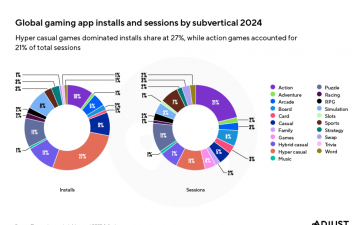
If one company can be said to have walked away the winner of the generative AI boom of the past few years, it’s OpenAI. The startup, which was founded as a non-profit with a mission to drive progress toward artificial general intelligence – aka a conscious machine – has led the pack of generative AI developers since it launched ChatGPT in 2022 and quickly became a household name.
But in recent months, more and more questions have been raised about the viability of OpenAI in the long term. As some of the biggest companies in the world look to pin down AI return on investment, OpenAI is still laying out its exact profit model. Can it keep its AI crown? Or is it on a downward trajectory?
In this episode, Jane and Rory look at the inner workings of OpenAI to understand how the company is faring amid strong competition and how it could perform in the next year.
Highlights
“[OpenAI] plans to be a profitable company, but as any business person will know … actually achieving that takes more than goodwill, deep intentions, and serious amounts of wishing. You’ve got to actually do something – and as you said earlier, there’s no sort of killer app for this yet, there’s no clear use case. And this is going to prove, in my opinion, to be an increasing problem for OpenAI.”
“Of course, OpenAI isn’t the only AI player in the cloud. All of this has been happening against a backdrop of an industry that’s very interested in making money off generative AI. Listeners will be aware that all of the hyperscalers have invested a lot of money in this. So that’s AWS, Microsoft Azure as we mentioned, and also Google Cloud have poured billions of dollars. Into developing their own models and releasing their own AI offerings.”
“I think the difficulty for OpenAI comes back to that same question of, ‘What am I using this for?’ Because a lot of the products and a lot of the companies that you’ve mentioned, they actually caught people’s attention with a really killer product. So Google completely conquered the search engine, made the best search engine in the world, not even close in terms of its performance compared to some of the other search engines available at the time. And at least that’s how it became to be seen in the eyes of the public.”












